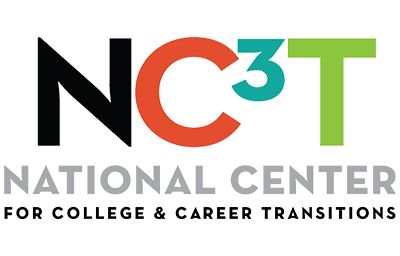Submitted by NC3T, Platinum Sponsor of the Advance CTE 2021 Spring Meeting
 As the lead developer of Seamless WBL, I talk with people all over the country about work-based learning. Over the past year, most of those conversations have centered around COVID-19 (coronavirus), which has turned the world of work-based learning absolutely upside-down.
As the lead developer of Seamless WBL, I talk with people all over the country about work-based learning. Over the past year, most of those conversations have centered around COVID-19 (coronavirus), which has turned the world of work-based learning absolutely upside-down.
Work-based learning (WBL) relies almost entirely on people-to-people contact, with students talking with and visiting employers and working at companies throughout a school’s community. It’s face-to-face; it’s shoulder-to-shoulder. And, introducing a virus that requires social distancing and self-isolation completely up-ends that model.
Most of the conversations I’ve had have focused on coming up with new strategies to do work-based learning, and many of those have been addressed with either virtual solutions (virtual guest speakers, virtual site visits) or simulations (launching student-based enterprises rather than conducting an internship at an employer site).
How vs. What
But a lot of people have jumped directly to the “how” without realizing that the “what” has changed.
The hallmark of Career Technical Education (CTE) is relevance: We’re working to prepare students for the kinds of professional opportunities they’ll pursue after graduation. And, it’s very easy to get too focused-in on fixing the mechanics of WBL without taking a step back to make sure that the occupations we’ve been preparing students for haven’t changed as a result of the pandemic as well.
Think about hospitality as an example of an industry that’s been hit hard by the pandemic. If you’re trying to get your students the same kinds of WBL opportunities as before (even if they are virtual) you’re probably missing some pretty big changes to the field: culinary, hospitality, travel, and events have all taken a huge hit, and it’s going to be a long time before they’re back to where they were a year ago.
Questions We Need Answers To!
While culinary is an obvious example, think about the countless desk-based occupations out there. How many are being done remotely? How does that change what students need to experience as they prepare for one of those occupations? What kind of new safety training and workflows are people in various high-skill trades dealing with? And, for those culinary students – if restaurants are hurting, who’s still doing well and require the same or similar skill sets?
So, before you go forward to tackle the urgent challenge of securing WBL slots, take a step. Talk with your employers, both on and outside your advisory board about the current state of things. Look at labor market data and talk with others in the field. You’ll feel better knowing the current landscape, and in a stronger position to find not just opportunities, but the right opportunities.
Brett Pawlowski is Executive Vice President of the National Center for College and Career (NC3T) (www.nc3t.com). NC3T provides planning, coaching, technical assistance, and tools. These strategies help community-based leadership teams plan and implement their college-career pathway systems and strengthen employer connections with education.
Visit Nc3T’s virtual booth at the Advance CTE 2021 Spring Meeting! More information and the interactive agenda can be found here.

